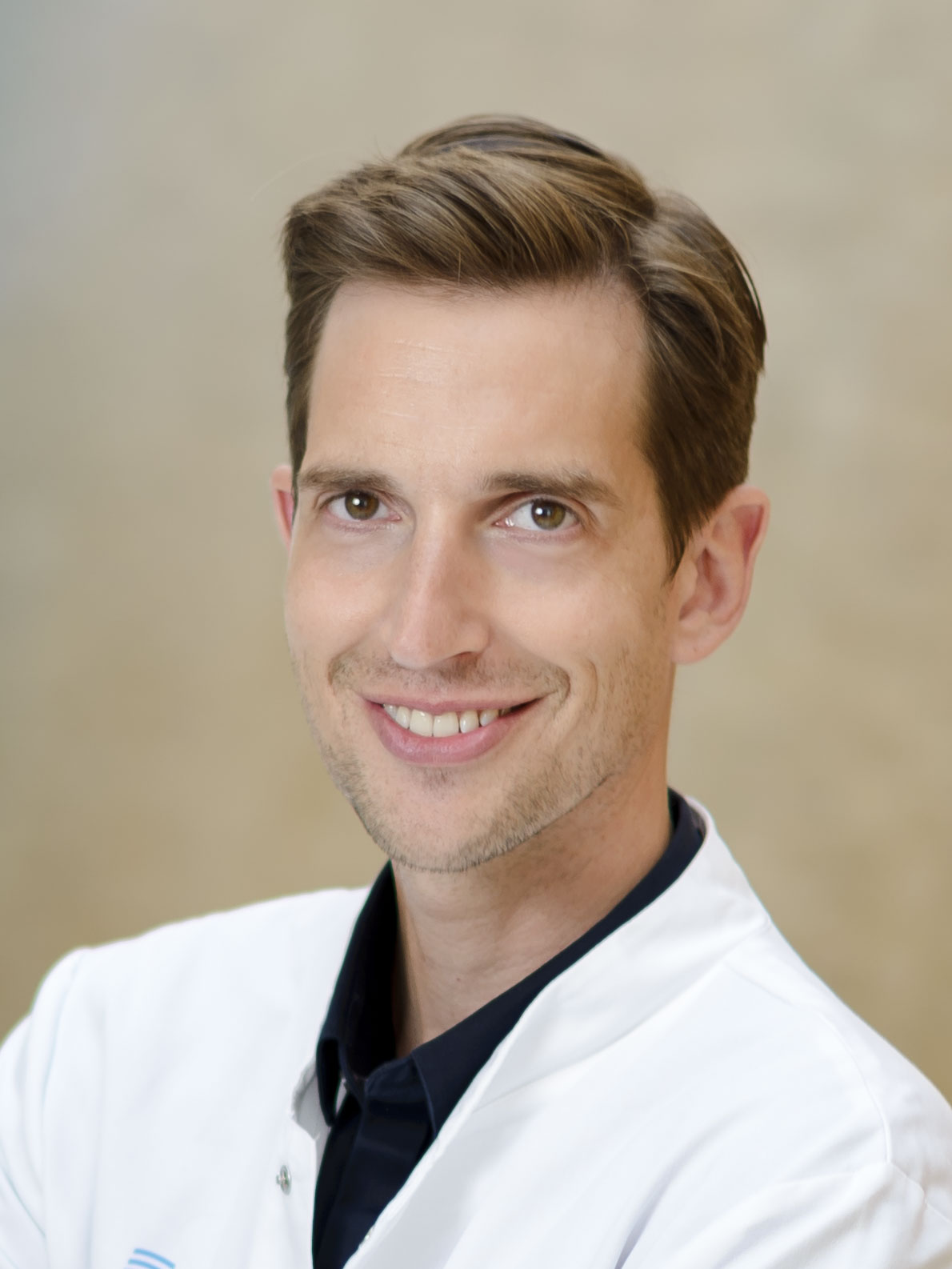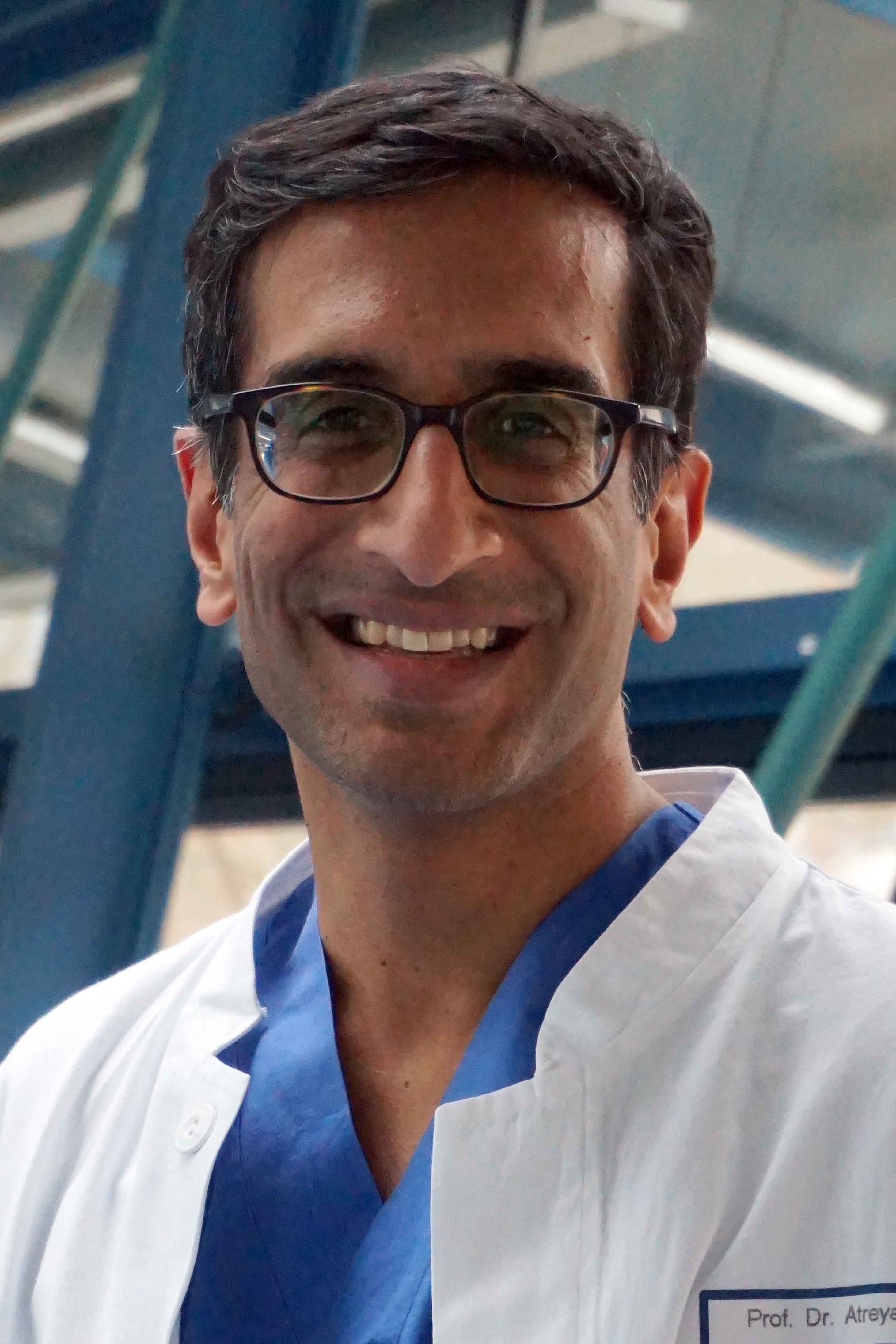ECCO Country Member Profiles: Germany
Dominik Bettenworth and Raja Atreya, ECCO National Representatives, Germany
 Dominik Bettenworth Dominik Bettenworth © Dominik Bettenworth |
 Raja Atreya Raja Atreya© Raja Atreya |
 |
Germany |
Name of group: The “Competence Network IBD (Kompetenznetz Darmerkrankungen)” is the interest group that oversees IBD-related activities in Germany. It incorporates the German IBD Study Group (GISG), which conducts collaborative IBD studies in Germany, the “German work group for Inflammatory Bowel Diseases (DACED), which is the IBD research organisation, the WG Bildgebung, which focusses on imaging-related projects, and the WG Zöliakie, which concentrates on coeliac disease. The “Competence Network IBD” also collaborates with diverse other groups (e.g. FA-CED, which represents IBD study nurses).
Number of active members: The Competence Network IBD comprises more than 700 members while the GISG has more than 170 members. There are 226 ECCO Members in Germany.
Number of meetings per year: There is one annual meeting of the Competence Network IBD that takes place during the yearly meeting of the German Society for Gastroenterology, Digestive and Metabolic Diseases.
President and Secretary: The current chairperson of the Competence Network IBD is Bernd Bokemeyer (Minden).
National Representatives: Raja Atreya, Erlangen and Dominik Bettenworth, Münster.
Joined ECCO in: Germany has been a proud member of ECCO since 2004.
Incidence of IBD in the country: 3–3.9/100,000 in Ulcerative Colitis and 6.6/100,000 in Crohn’s Disease
What has changed since your society became an ECCO Country Member?
ECCO activities have made a substantial impact in raising the awareness of IBD in Germany. The ECCO Congress is recognised as the leading IBD meeting worldwide and is attended every year by a constantly rising number of German delegates. Interest in the management of IBD is steadily growing among clinicians and nurses and this is best reflected in the organisation of respective interest groups. There are also strong basic science, translational and clinical research activities across Germany.
What are the benefits to you of being an ECCO Country Member?
ECCO offers a variety of outstanding opportunities. For instance, an ECCO Educational Workshop was hosted in Berlin several years ago and offered participating clinicians an excellent opportunity to learn from case scenarios presented and discussed by senior ECCO Faculty Members. In addition, specific clinical questions may only be adequately addressed in a larger framework as provided by the ECCO CONFER Cases that investigate exceptionally rare phenomena in patients with IBD. Furthermore, the IBD Intensive Advanced Course is also highly appreciated among junior doctors in Germany and there are always more applicants than open positions.
Is your society making use of the ECCO Guidelines?
Our society is definitely taking into account the statements and recommendations of the ECCO Guidelines when preparing the respective updated versions of our national guidelines for the diagnosis and treatment of Crohn’s Disease and Ulcerative Colitis. In conjunction with country-specific features, the ECCO Guidelines provide a valuable basis for working out our recommendations. Special attention is paid to the ECCO Guidelines concerning specific topics (e.g. opportunistic infections), which are widely used in clinical practice.
Have you developed links with other countries through your ECCO Country Membership?
Based on personal interaction between ECCO Members, several research projects and educational activities were initiated and successfully performed over recent years on a multinational level. For instance, Andreas Sturm and Raja Atreya were both actively involved in the EU-funded FP7 Sadel project, in which ECCO served as a consortium partner. Germany is participating in the I-CARE study, predominantly driven by contacts developed through ECCO. Germany is also taking part in the SPARE trial (BIOCYCLE project, Horizon 2020), in which ECCO is actively involved. Germany has participated in a number of questionnaires driven by ECCO.
Have you developed educational activities with other countries through your ECCO Country Membership?
Germany has served as an education site for intestinal ultrasound.
What are your main areas of research interest?
Research activities span all relevant IBD topics and include research on immunopathogenesis, mucosal and epithelial immunology, real-world data and register studies, biomarkers, fibrosis, pouchitis, genetics, microbiome, clinical trials, therapeutic drug monitoring, endoscopy, molecular imaging, sonography, patient-reported outcomes, psychosocial impairment, disease stratification, predictors of response to therapies and de-escalation of therapy.
Does your centre or country have a common IBD database or bio bank?
The Kompetenznetz Darmerkrankungen has conducted several real-world studies evaluating the efficacy and safety of biological treatment in IBD patients.
What are your most prestigious/interesting past and ongoing projects?
Ongoing and already completed GISG studies.
Which ECCO Projects/Activities is the group currently involved in?
Five German ECCO Members are currently involved in ECCO Committees: Sebastian Zeissig, Christian Maaser, Torsten Kucharzik, Petra Hartmann and Dominik Bettenworth. Britta Siegmund is actively involved in UR-CARE. Furthermore, we are contributing to the current update of the ECCO Guideline on Ulcerative Colitis.
What are your aims for the future?
Further extend the already growing number of collaborative IBD research projects across Germany.
How do you see ECCO helping you to fulfil these aims?
The ECCO Awards and Grants are a highly appreciated support opportunity for our research projects. Furthermore, ECCO provides an excellent basis to conduct multicentre research projects across Europe.
What do you use ECCO for? Network? Congress? How do you use the things/services that ECCO has to offer?
The annual ECCO Congress is definitively the place to be for everybody who is looking for an outstanding overview of ongoing clinical trials and top-notch basic and translational research that will change clinical practice in the years to come. Moreover, the various workshops organised by the ECCO Committee alongside the Congress offer a unique opportunity to specifically fill knowledge gaps and to interact and learn from pan-European colleagues. Finally, the ECCO Homepage, and in particular the e-Learning platform, is a valuable tool to increase the skills and knowledge of every IBDiologist.


